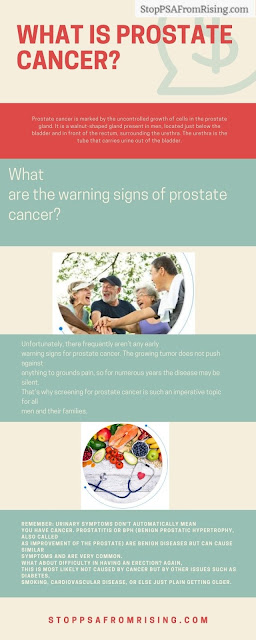How to survive from Prostate Cancer with proper treatment?
Prostate cancer is one of the most frequent types of
cancer in males. However, it is highly curable in the early stages. It commences
in the prostate gland, which sits between the penis as well as the bladder.
The prostate has various functions, including:
·
Producing the fluid that nourishes as
well as transports sperm
·
It also secrets prostate-specific
antigen, a protein that helps semen retain its liquid state
·
It also helps aid urine control
Prostate Cancer is the most widespread cancer to
affect males in the United States. In the year 2019, the American Cancer
Society predicts that there is around 174, 650 new identifications as well as
around thirty-one thousand six hundred twenty deaths from this type of cancer.
Approximately one in nine males receive a diagnosis
of prostate cancer at some point in their life—however, only one out of
forty-one die as a result of it.
It is because treatment is effectual, especially in
the early stages. Routine screening enables doctors to detect numerous cases of
prostate cancer before they spread.
Symptoms of Prostate Cancer
There are often zero symptoms associated during the
early stages of prostate cancer, but screening can identify changes that can
indicate cancer.
Screening includes a test that measures levels of
PSA in the blood. High levels of PSA may suggest that cancer may be present.
Some males who do experience symptoms may notice:
·
Trouble starting and maintaining
urination
·
A repeated urge to urinate, especially
at night
·
Blood in the urine or else semen
·
Feeling pain during urination
·
Difficulty getting or else maintaining
an erection
·
Discomfort while sitting with enlarged
prostate gland
Advanced Symptoms
Advanced prostate cancer can involve the following
symptoms:
·
Bone fracture or else bone pain,
especially in the hips, thighs or else shoulders
·
Edema – swelling in the legs or feet
·
Weight loss
·
Tiredness
·
Changes in bowel habits
·
Back pain
Treatment for prostate
cancer
Treatment depends on the stage of prostate cancer,
among other factors.
Here, we discuss some of the treatment alternatives
for each stage of prostate cancer, as well as some new methods and what
treatment means for fertility:
Premature stage prostate cancer
Watchful
waiting or monitoring – The doctor may verify PSA blood
levels regularly but take no immediate action. Prostate cancer develops
gradually, and the risk of side effects may outweigh the need for immediate
treatment.
Surgery
– a
surgeon, may execute a prostatectomy. They can remove the prostate gland using
either laparoscopic or else open surgery.
Radiation therapy –
·
Brachytherapy
-
A doctor embeds radioactive seeds into the prostate to bring targeted radiation
conduct.
·
Conformal
radiation therapy - This aims a specific area, minimizing
the risk to healthy tissue. Another type, called intensity-modulated radiation
therapy, uses beams with variable intensity.
Advanced prostate cancer
As Prostate cancer grows, it can extend throughout
the body. If it spreads, or if it comes back after remission, the treatment alternatives
will change.
Options
include:
·
Chemotherapy:
This can kill cancer cells throughout the body, but it can cause unpleasant
effects.
·
Hormonal
therapy: Androgens are called as male hormones. The significant
androgens are testosterone as well as dihydrotestosterone. Lessening these
hormones appears to discontinue or delay the enlargement of cancer cells. One alternative
is to undergo surgery to eliminate the testicles, which produce most of the
body’s hormones.


Comments
Post a Comment